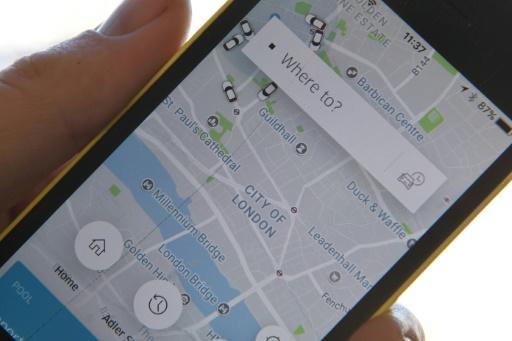My culture is a large part of my identity, but so are other varying components such as my socio-economic background. Therefore, if you asked me to choose between preserving my culture or advancing my economy, I would struggle. I know my opinion would unintentionally convey my bias. In light of this, I can only guess that this was one of the struggles Sadiq Khan, mayor of London and Labour Party politician, faced these last few months when deciding between the new and the old—the Uber app and the black cabs.
Sadiq Khan chose to support Transport for London (TfL), a local government body responsible for the transport system in London rather than renew Uber’s license to operate. This decision was predicated on the fact that Uber cannot be considered a “fit and proper” private car-hire service. Uber used its technological advantage to skirt the law in many respects. Uber also draws out the process of reporting criminal offenses. One example, is when a London Uber driver sexually assaulted a passenger. Uber reported this crime to the TfL, but not to the police as it should have. An executive at Uber’s United Kingdom operation made the following statement on this incident: “We hold our hands up, we made a mistake. In that incident we just didn’t realize when that passenger wrote in how serious it was… We apologize to everyone involved.” As an Uber app user, I appreciate that Uber is starting to take responsibility for its actions. However when a complaint is filed, it is Uber’s responsibility to cover all its bases and not consistently make the same mistake. It is not okay for Uber to constantly ignore passenger complaints or to take them lightly. It is important for Uber, a multi-billion dollar company, to invest in improving its customer service center.
Another point of contention for the TfL and Sadiq Khan is that Uber does not conduct the appropriate background checks when hiring a driver. Uber later reported that the aforementioned Uber driver went on to commit further serious attacks against his passengers. Background checks are expensive, but imperative. A background check on this driver could have saved many people from traumatic experiences.
Despite all this, Uber’s incompetence is not what motivated the TfL and Sadiq Khan to revoke Uber’s license to operate. The root of the problem is that Britain has been in a constant state of turmoil since voting to leave the European Union last year. The so-called “Brexit” has emboldened people to say that immigrants are usurping the jobs in London. Since a little over 100,000 immigrants in London are Uber or minicab drivers and only about 25,000 British citizens are black cab drivers, the numbers tilt in favor of the immigrants. The Brexit battle started with technology overpowering culture, but has turned into a battle of immigrant versus native, new versus old.
London cab drivers are renowned for their knowledge of the streets and their powerful history dating back to 1634. To become a licensed black cab driver one must take the world’s toughest taxi exam—the Knowledge— which includes 25,000 roads and 100,000 landmarks. Uber is a San Francisco-based company that entered the London taxi market in 2012 and has since employed 40,000 London based Uber drivers. There are also approximately 3.5 million Uber app users in London alone. Many black cab drivers believe that Uber is a threat to their livelihood. Their fears worsened in 2015 when the number of people attending the Knowledge exam’s introductory seminar dropped from 60 to 6. Additionally, a two mile drive costs an average of £14 in a black cab and £8 in an Uber. A black cab driver who is also an instructor for the Knowledge exam said, “I genuinely believe their aim is to wipe us out. [They want to] starve black taxis into submission and then run riot with that marketplace.”
On the contrary, Uber has improved the lives of their 40,000 drivers in London. It has guaranteed them job security, increased their hourly earning to £16 and enabled people to be their own bosses. There is also an obvious caveat: Uber ratings. If a driver’s ratings fall below a certain number, that driver is called in for a “quality session.” This ensures that the Uber drivers do not slack off while at work. They are their own bosses, but the company takes over if the drivers cross a line. Uber has also made their users’ lives more convenient. The ease and comfort with which people can leave a restaurant or bar and call an Uber shows how in only a few years our lives have become dependent on the Uber app. Uber is a consumer friendly brand.
While Uber has made the lives of their drivers and consumers easier, it is a company with a complicated history. Uber has been accused of breaching regulations in France, Belgium, Germany, the Netherlands, Canada, Australia, New Zealand and Brazil. It has been ousted from Delhi, India and Austin, Texas and it faced 50 federal lawsuits in the U.S. alone in 2015. The charges against Uber include deceptive pricing, discrimination against disabled people, lack of a minimum wage and the company’s liability for assaults by its drivers. Just because Uber has shown the world how technology can be used to make people’s lives easier does not mean it has a free pass to ignore its corporate responsibility.




